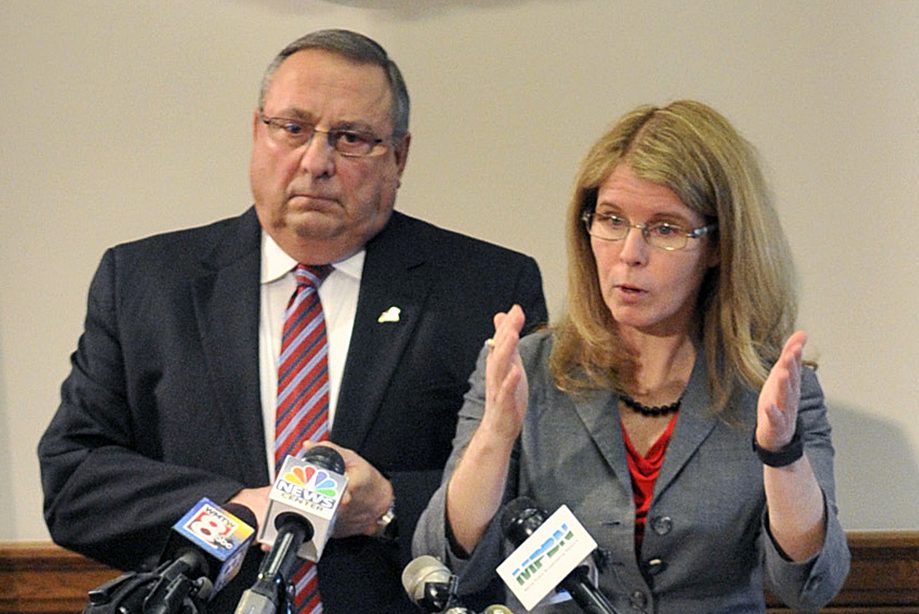The Maine Department of Health and Human Services is in disarray.
Two children have died in the past year under the state’s watch. The Legislature’s Government Oversight Committee tried to investigate but encountered the foot-dragging of Gov. Paul LePage and Commissioner Ricker Hamilton. It took a subpoena to finally get the commissioner to show for a mid-summer committee meeting, where he said that 75 additional child welfare workers would be needed.
But the governor’s initial bill came out with no additional workers proposed. Leave it to the next administration, says the governor, after which, Hamilton suddenly retired. A later bill adds 18 supervisors but no additional front-line workers. Current department caseworkers express dismay.
Does it have to be this disjointed to do the right thing for Maine children in state care? Granted, the department is unwieldy, being the largest single agency in state government, with the biggest budget and the most employees. An already huge Department of Human Services was made even larger in the Baldacci administration, when the Department of Mental Health and Mental Retardation was merged into the new DHHS. Thought to be a move for greater efficiency and coordination, the merger is said to have created a behemoth.
Enter the LePage administration, which undertook a long list of actions (or inactions) calculated to diminish the public visibility, reach, and prominence of DHHS. Commissioners and other staff have been routinely forbidden to appear before legislative committees of oversight. Data reports and annual reports commonly posted on the website for viewing by the public were taken down. Requests for information by the Legislature’s Health and Human Services Committee were ignored or delayed. Freedom of Information requests were priced as high as $65,000 by the department, which doesn’t pass the straight-face test. Federal grants provided to states were ignored or proposals withdrawn, resulting in a loss of millions of federal dollars to conduct important health programs.
A churning of leadership and middle-management staff sent a high level of expertise out the door. Overall staffing levels were drastically reduced, affecting the morale of remaining employees. Laws passed by the Legislature or the public through referendum, such as Medicaid expansion and public health nurse staffing requirements were flat-out ignored.
Which makes one ask, where’s the accountability? Accountability for all levels of government is a commonly held Republican Party value — built directly into the party platform. Is accountability applied to some but not to others?
Child deaths happened on Hamilton’s watch but are also tied to the policy approach of LePage and former Commissioner Mary Mayhew.
That approach, in a nutshell, is that the department is too big, with too many programs, too many employees, and too many contracted vendors. When employees retire, do not replace them. When a program’s funding ends, do not reapply. When at all possible, consolidate the number of local grantees and push management of programs and services out the door to large nonprofits.
Dismantling government bureaucracy to make it “leaner and more efficient” has consequences. For example, 10 years of steady downsizing of public health programs in the department — yes, under the Baldacci administration too — have left us exposed and flat-footed in the face of emerging health threats. One out of six high school students now use a vaping product (e-cigarettes) and school systems are alarmed. We know all too well the precipitous rise of opioid deaths in our communities. One out of every 20 Maine kindergarteners has not been vaccinated — more than double the national average. Recently, we have seen troubling rises in maternal and infant deaths. Our ranking among the healthiest states has declined from eighth to 23rd, according to the United Health Foundation.
And two children in state custody fell through the cracks while cases of reported child abuse skyrocketed, and caseworker employment remained flat.
Government is not an enemy — it is a place where collectively we come together to solve problems that we can’t address alone. We can solve these problems; we’re Maine and we’re used to rolling up our sleeves and getting to work. But we need to get back to working together.
It is therefore a good sign that the Legislature is seriously examining the governor’s bills to improve the child welfare system. While there is always tweaking around the edges, much of what the governor proposed is supported by advocates and policymakers. Changes must be made at the department, changes that are rooted in good practice and span the transition from one administration to another.
And when we’re done with that we’ve got more work to do to rebuild department programs that prevent illness and injury. If we want healthy kids that are ready to learn, workers that are more productive, and seniors that can stay in their homes, there are common sense measures that the department can and should commit resources to. It’s time to roll up our sleeves.
Lisa Miller, of Somerville, is a former legislator who served on the Health and Human Services and Appropriations and Financial Affairs committees.
Copy the Story LinkSend questions/comments to the editors.



Success. Please wait for the page to reload. If the page does not reload within 5 seconds, please refresh the page.
Enter your email and password to access comments.
Hi, to comment on stories you must . This profile is in addition to your subscription and website login.
Already have a commenting profile? .
Invalid username/password.
Please check your email to confirm and complete your registration.
Only subscribers are eligible to post comments. Please subscribe or login first for digital access. Here’s why.
Use the form below to reset your password. When you've submitted your account email, we will send an email with a reset code.